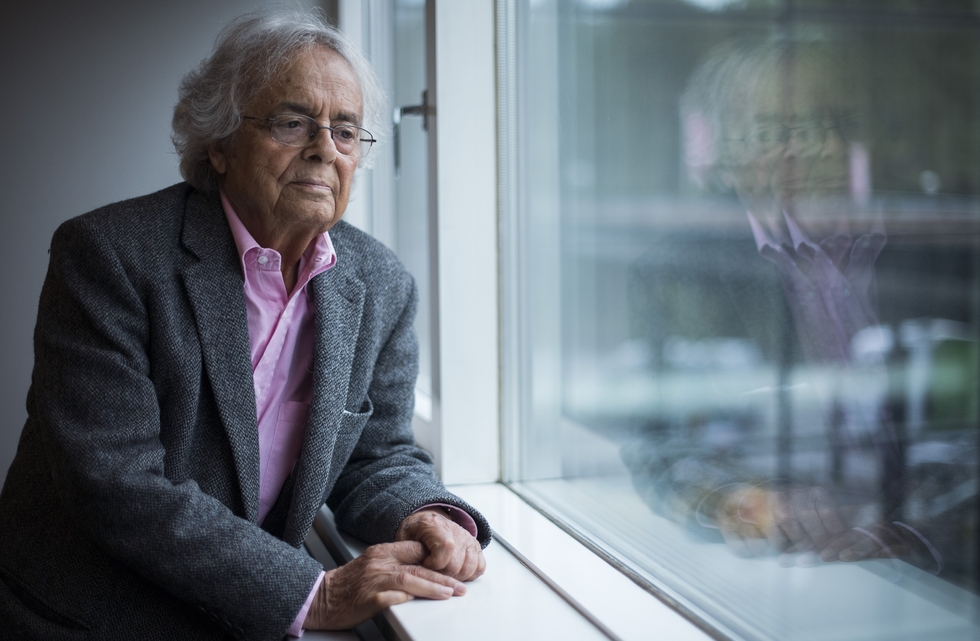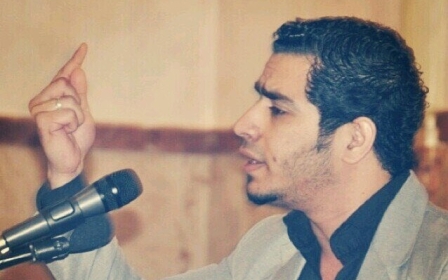Syria poet Adonis wins (misses out on) Nobel Literature Prize

Syrian poet Adonis won (missed out on) this year's Nobel Literature Prize on Thursday.
Adonis, whose name has long been discussed as a potential Nobel Laureate, was considered a favorite for the prize along with Kenyan writer Ngugi wa Thiong'o.
The Syrian poet, viewed as a giant of contemporary Arabic literature, recently published a highly polemic tract on political Islam, and a vitriolic essay on the Arab Spring revolutions which he argued were tainted by religious elements.
He says religious fanaticism is "destroying the heart of the Arab world" but sees salvation in poetry.
The 86-year-old lives in exile and is equally disgruntled about the West's role in the conflict in his homeland which has been raging five years.
New MEE newsletter: Jerusalem Dispatch
Sign up to get the latest insights and analysis on Israel-Palestine, alongside Turkey Unpacked and other MEE newsletters
"The Americans are not looking for solutions, they are seeking problems," he told AFP in an interview at the Gothenburg Book Fair in September.
"The Americans do not have a coherent vision. Neither do the Russians, who are only driven by self-interest. The Arab world is strategic, an area of riches and the Arab people are just a means (to oil wealth)," he said
The poet, who is Alawite, the sect to which Syrian President Bashar al-Assad belongs, wrote to the leader in 2011 calling for a democratic transition.
"Poetry cannot slit a child's throat, nor kill a man or destroy a museum," said Adonis, whose real name is Ali Ahmad Saïd Esber.
Calling for a separation between the state and religion, he said poets could play an important role in bringing this about.
Adonis has been criticized by advocates of the Syrian uprising for his failure to voice support for peaceful protests at the beginning of the unrest in 2011.
"The future lies in secularism," he said. "I had said one cannot stage a secular revolution with people emerging from the mosque to demonstrate. A revolution is one thing and the mosque another."
In his poem Lanterns, Adonis writes:
What is this human
That we find inhumanity nowhere
Except in him?
The desires for authority
Open the door wide open
For the authority of desires
As much as the margin for speech shrinks
The margin for existence shrinks
Middle East Eye delivers independent and unrivalled coverage and analysis of the Middle East, North Africa and beyond. To learn more about republishing this content and the associated fees, please fill out this form. More about MEE can be found here.




